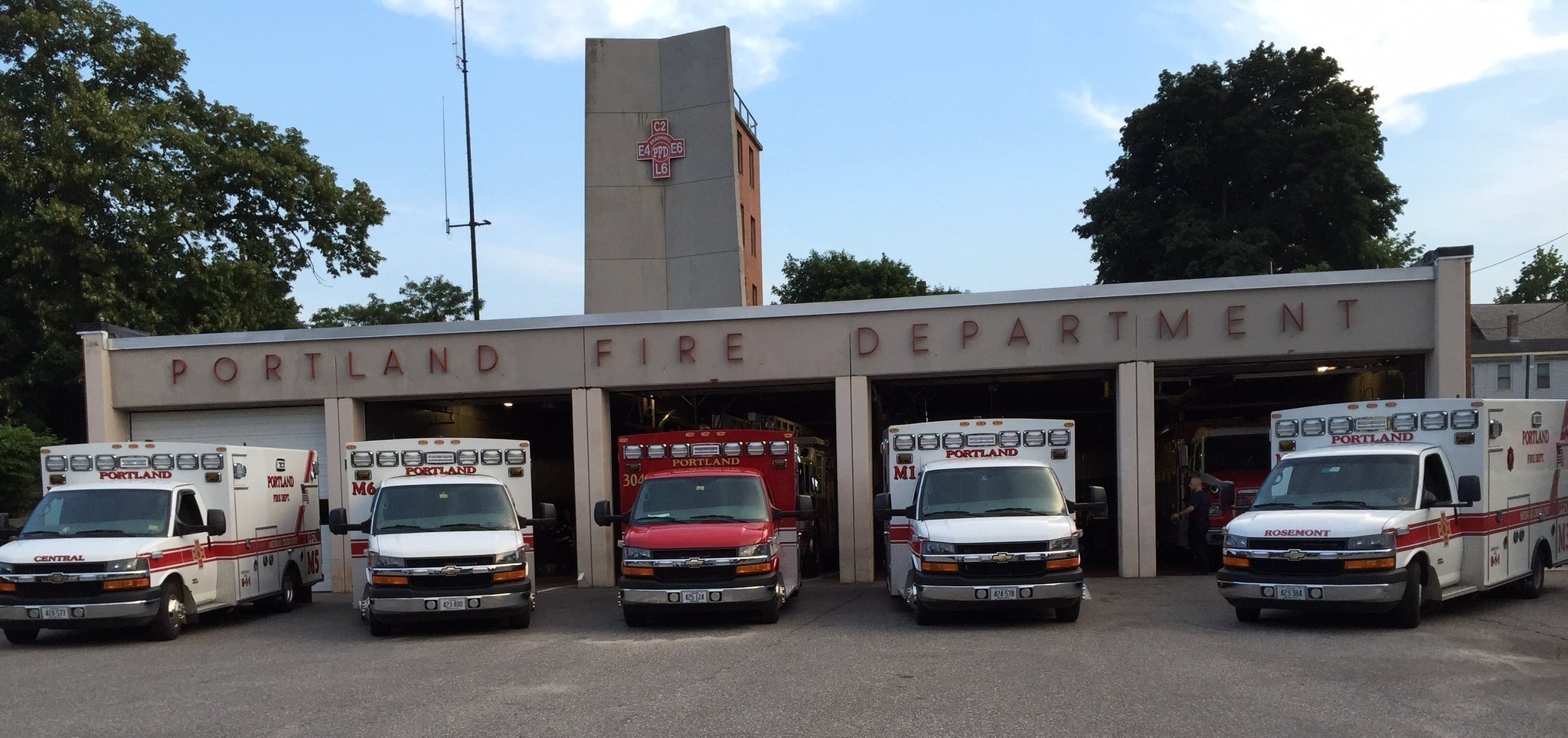EMS Fellowship Description and Curriculum:
The MaineHealth Maine Medical Center Emergency Medical Services Fellowship is a 1-year ACGME accredited training program for emergency physicians seeking a career and board certification in EMS medicine, accepting one trainee per year. The program is built as a collaboration between MaineHealth Maine Medical Center, Portland Fire Department, and LifeFlight of Maine.
MaineHealth Maine Medical Center (MMC) is a tertiary care center serving Maine and northern New England. The hospital is a Level 1 Trauma Center, Comprehensive Stroke Center, primary PCI center, advanced heart failure center (including VAD and ECMO) and has the state’s largest volume of Emergency Medicine patients. MMC is also home to the Barbara Bush Children’s Hospital, the state’s only children’s hospital. With over 100,000 annual visits, the BBCH is home to 116 in-patient beds, including 31 Level IV NICU Beds, 20 Level II Continuing Care Nursery Beds and 8 PICU Beds. Affiliated with Tufts University School of Medicine, MaineHealth hosts an Emergency Medicine Residency and robust medical student rotations. Fellows work clinical shifts in the MMC ED supervising resident and medical student learners.
Portland Fire Department (PFD) is a professional fire-based EMS service and is the busiest 911 system in Maine. PFD responded to 16,013 patients in 2023 of which 14.5% were pediatric. Fellows spend the majority of their field time with PFD, working with front line crews on ambulances running out of each of the five geographic districts in the city to see the breadth of the city’s population and associated medical needs. Additionally, fellows work closely with Shift Leaders, responding with the Shift Lieutenants and Captains in a fly car designated “Car 9” through which fellows will have access to all EMS responses across the city. While on scene, the fellow provides direct medical oversight of clinical care, caregiver communication techniques, patient refusals, and all of the intangible items that make prehospital care unique. Fellows are expected to provide directed feedback and education to the prehospital providers and will receive feedback evaluations from the providers and supervisors at the end of each shift. Fellows also have the opportunity to participate in any of the department’s special responses, which include, training with the city’s Special Reaction Team, participation in the department’s Mobile Medical Outreach program (intended to proactively support the city’s most vulnerable population such as those suffering SUD/homelessness), the Air-Response team covering the Portland International Jetport, the Marine Units covering the city’s waterscape, the Haz-Mat team, and the technical rescue service. This will expose fellows to the realm of special response medicine while under direct supervision of the team’s Medical Directors.
LifeFlight of Maine (LFOM) is Maine’s only helicopter EMS program and responds to over 2,300 calls/year. The agency has three rotor wing aircraft spread geographically across the state, as well as a single fixed wing aircraft. Fellows spend a rotation learning from LFOM Medical Directors, participating in education and quality improvement efforts, and have the opportunity to fly with the service. During this rotation, Fellows assist the Medical Direction team in on-line medical control calls, post-hoc call review, utilization review, and quality improvement efforts.
In addition to these pillars of the program, fellows participate within Maine EMS – the statewide bureau that resources a regional system, oversees the development of statewide treatment protocols, and performs system wide quality improvement.
Fellows also have an opportunity to choose from elective rotations to gain insight into specific areas of prehospital medicine that best suit their interests.



